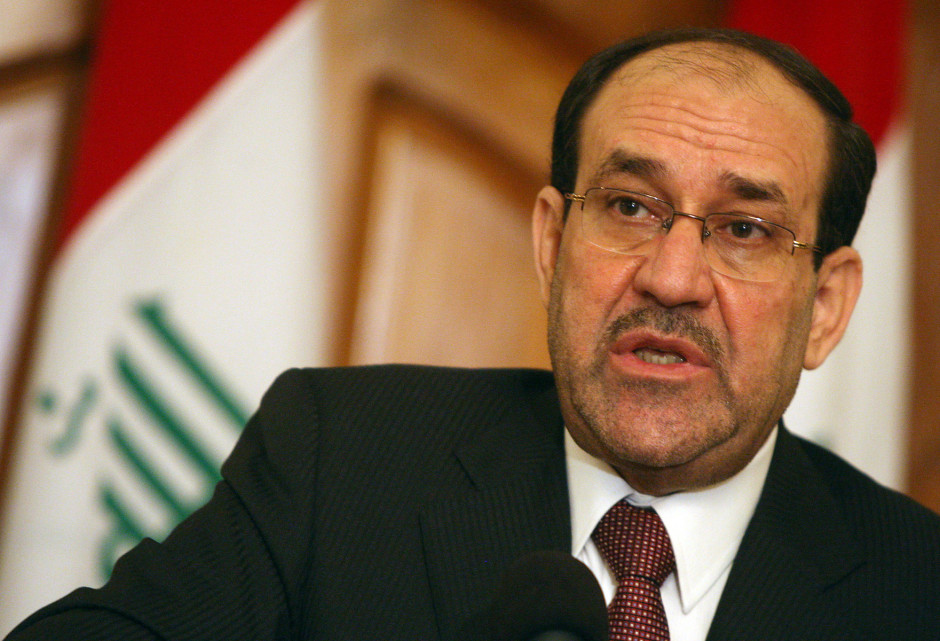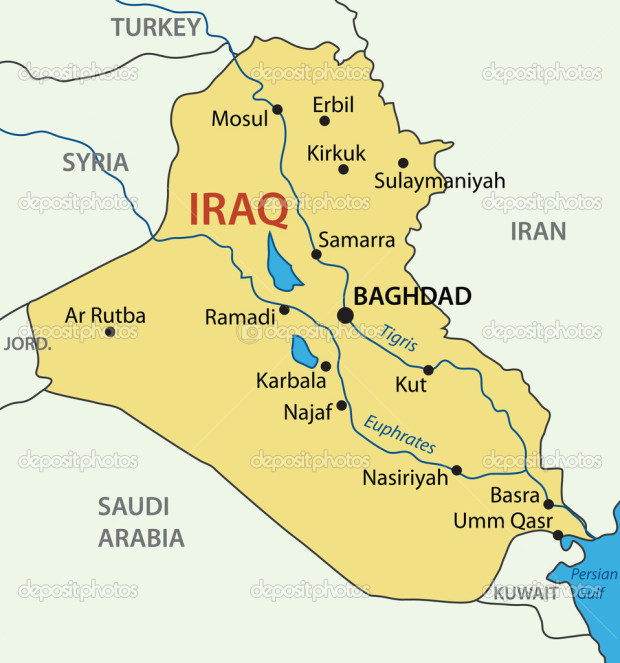A few days ago, the United Nations released a grim report concerning the escalating sectarian violence in Iraq, an oil-rich Arab state that has know little peace and quiet since the U.S. invasion 11 years ago this month. By its count, 703 Iraqis — 564 civilians and 139 members of the security forces — were killed in February, a death toll higher than in the same month last year.
The UN figures did not include deaths resulting from fighting in Anbar province, a center of Sunni extremism in western Iraq. In early January, Sunni jihadists aligned with the Islamic State of Iraq and Syria, an Al Qaeda affiliate headed by Abu Bakr a-Baghdadi, seized control of two of its cities, Falluja and Ramadi, and since then Iraqi government troops, aided by fighters from Sunni regional tribes, have besieged the invaders.
The siege has been costly to both sides, but the UN has not published figures because it has been unable to verify casualties, which have probably run into the hundreds.
On the day the UN report was made public, Iraq, as usual, was convulsed by violence. In Tarmiya, a town north of Baghdad, gunmen in speeding cars attacked a government checkpoint, killing two soldiers. In Abu Ghraib, a suburb of Baghdad, two soldiers were killed in a similar attack.
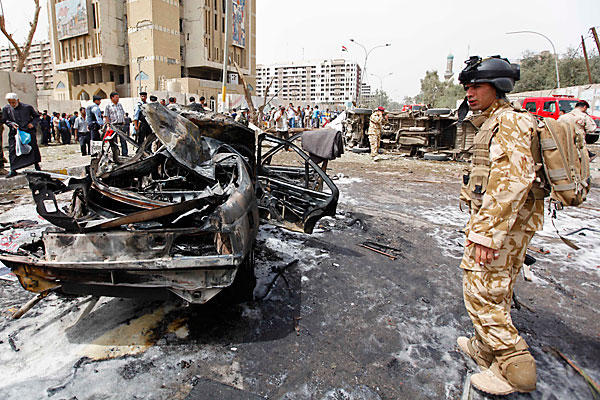
Several days earlier, 38 Iraqis were killed in a series of bombings across Iraq.
These attacks, as well as scores of previous ones, have raised justifiable fears that the bloodshed in Iraq will not ebb any time soon.
Iraq, ruled by a minority Sunni regime from the 1960s onward, was one of the most stable Arab nations until the United States and its allies invaded in March 2003. This stability was achieved by totalitarian methods of the kind employed by the Baath party. The last such regime, ruled by Saddam Hussein from 1979 until 2003, ruthlessly bottled up sectarianism and established a classic police state bereft of human rights, freedom of speech and expression and the rule of law.
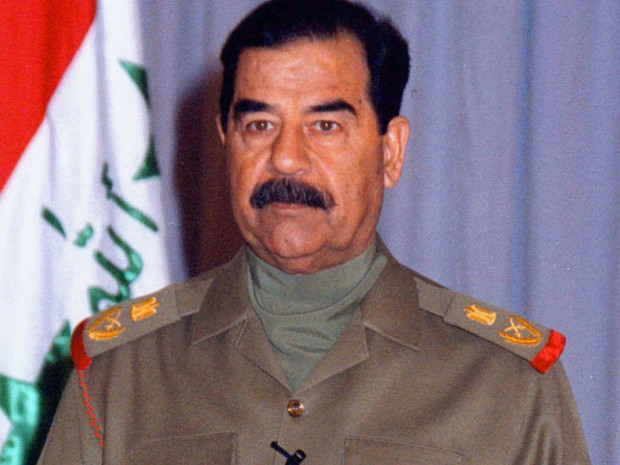
But after Washington’s armed intervention and the empowerment of the majority Shiite population, widespread chaos descended on Iraq. Sunni and Shiite militias squared off. Moktada al-Sadr, a Shiite cleric under the influence of Iran and the head of an anti-American militia known as the Mahdi Army, staged two bloody revolts in Falluja in 2004. In these hard-fought battles, which left parts of that city in smouldering ruins, the United States lost almost one-third of the soldiers who would be killed in its entire engagement in Iraq.
Sectarian violence reached a peak in 2006, when Iraq was gripped by civil war. The violence, orchestrated in part by disaffected members of the old and discredited regime, decreased significantly in 2008 following U.S. offensives and a Sunni revolt against Al Qaeda organized and financed by the United States.
President Barack Obama withdrew U.S. troops from Iraq in December 2011, leaving a token residual force to protect the American embassy and train Iraqi troops.
Violence levelled off between 2008 and 2012, but Iraq continued to be plagued by suicide bombings and sectarian killings. In 2013, Iraq reverted to form, with 8,868 people having been killed in terrorist incidents.
Along with Afghanistan and Pakistan, Iraq now has the dubious distinction of being one of the world’s suicide bombing capitals.
The UN representative in Iraq, Nickolay Mladenov, has urged Iraqis to unite in communal harmony. As he put it recently, “The political, social and religious leaders of Iraq have an urgent responsibility to come together in the face of the terrorist threat that the country is facing. Only by working together can Iraqis address the causes of the violence and build a democratic society …”
Easier said than done.
One of the most serious problems in Iraq today revolves around the nature of its leadership. Prime Minister Nuri Kamal al-Maliki, a Shiite who has been in office since 2006, has squandered the opportunity to heal sectarian divisions.
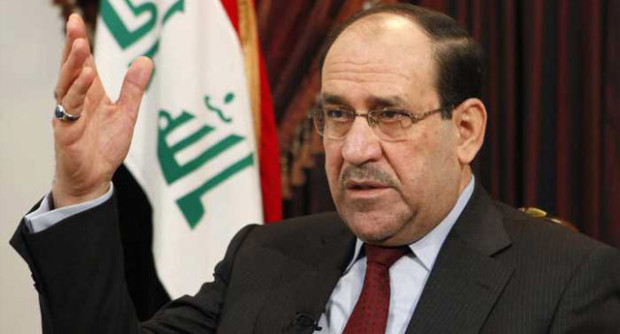
“He has taken a hard sectarian line on security and political challenges,” writes Nussaibah Younis, a research fellow at Harvard University. “He has resisted integrating Sunnis into the army. He has accused senior Sunni politicians of being terrorists, hounded them from power and lost the cooperation of the Sunni community. The result: the political bargain that had sustained the fragile Iraqi state broke down.”
No less a figure than Moktada al-Sadar has criticized Maliki, saying he has behaved like a dictator and used the army against the people. Sadr, who threw his support behind Maliki in the 2010 general elections and then withdrew it, likens him and his associates to “a group of wolves hungry for power and money.”
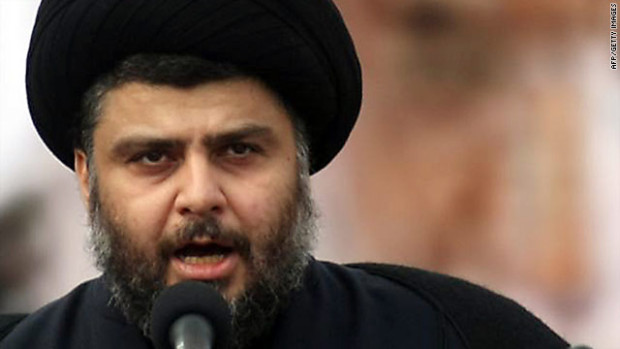
Sadar announced his withdrawal from Iraqi politics in mid-February, but he remains a formidable presence, much to Iran’s advantage. More than any other country in the Middle East, Iran has reaped the benefits of the turmoil convulsing Iraq. Iran’s nemesis, Saddam Hussein, is dead and buried. And the regime that governs Iraq today has adopted a friendly and cooperative attitude to Iran.
Maliki has largely failed to build bridges to Iraq’s minorities. He has had tense relations with the Kurds, who’ve formed a semi-autonomous region in the north. And his reluctance to share power with Sunnis has emboldened Sunni youth to join the ranks of Al Qaeda, which is behind the current insurgency in Anbar province.
The rebellion broke out on Jan. 1, when Islamic State of Iraq and Syria jihadists drove into Falluja and Ramadi in 100 trucks bristling with heavy machine guns and anti-aircraft batteries. In a lightning operation, they seized police headquarters, the mayor’s office and planted their flags on government buildings.
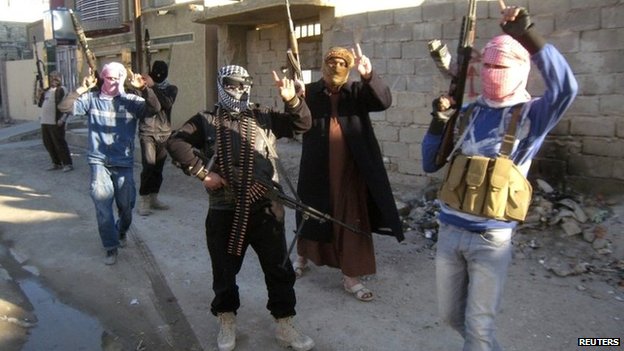
In response, the United States has promised to send Raven surveillance drones and Hellfire missiles to Iraq. Under a previously signed contract, the United States will deliver a batch of F-16 fighters to the reconstituted Iraqi Air Force, which was once dependent on Russian military equipment. The Russians are still selling arms to Iraq. Last November, they delivered the first four of more than 24 Mi-35 attack helicopters to the Iraqis.
The influx of American and Russian weapons may well help the Iraqis confront the jihadists in Falluja and Ramadi, but it will be a tough fight, as Iraqi Foreign Minister Hoshyar Zabari acknowledged last month.
Some of the Sunni radicals entrenched there are seasoned veterans of the ongoing civil war in neighboring Syria, so the battle may go on for many more months. “We will be in this for the long haul,” he said. “Probably as long as the war in Syria is going on.”
Which means that Iraq will be rocked by instability for the foreseeable future.
.
